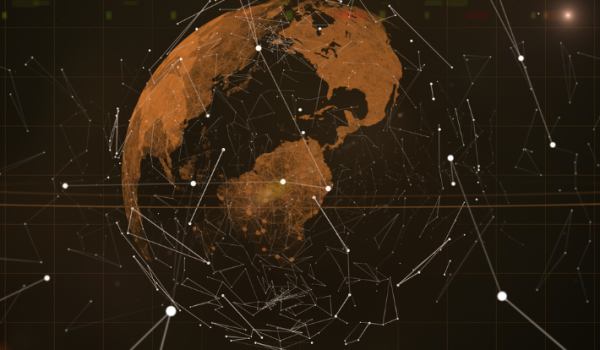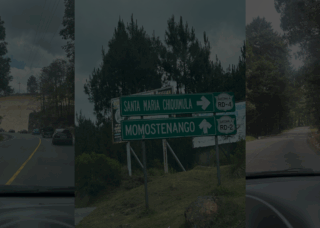Private investigators, often shortened to “PIs,” have captured the public’s imagination for years. Whether portrayed in films, television shows, or literature, they’re depicted as relentless pursuers of truth, working in the shadows.
In reality, private investigators are professionals who offer their services to individuals, businesses, and even legal teams.
PIs can help you with a lot of things, but their main objective is to gather facts. However, while their role might seem straightforward, the regulations governing their work are anything but.
Many often wonder…
Are Private Investigators Legal?
Private investigators are legal in many countries, such as the United States, United Kingdom, Canada, and Australia.
This leads to another equally important question, is hiring a private investigator legal everywhere?
The answer is no. In some places like India and Japan, they operate under certain restrictions. In contrast, countries like Iceland and North Korea completely prohibit private investigations.
Around the globe, nations view the profession of private investigators differently, leading to a diverse landscape of rules and permissions.
But why does this difference in viewpoint exist? And where, exactly, can these professionals operate freely?
This article delves deep into these questions, offering clarity on a topic shrouded in mystery.
The Legality of Private Investigators: Countries Where PIs are Legal and Illegal
When discussing the legality of private investigators, it’s essential to recognize that the world doesn’t have a singular stance. Instead, each nation has crafted its regulations based on cultural, legal, and ethical considerations. Broadly, the status of private investigators across the globe falls into three main categories.
Countries Where Private Investigators are Completely Legal
- United States
- United Kingdom
- Canada
- Australia
In nations such as the United States, the profession of private investigation is not only permitted but also has a structured framework to ensure ethical and legal conduct.
For instance, aspiring PIs in the U.S. typically undergo rigorous training, after which they must secure a license to operate. This licensing ensures they understand and respect legal boundaries during their work.
Similarly, other countries, like the United Kingdom, Canada, and Australia, have chosen to recognize and regulate private investigators. In these places, the profession is seen as a valuable adjunct to official law enforcement, assisting in cases that might be outside the usual police purview or helping private entities with their concerns.
Countries Where Private Investigators are Legal with Restrictions
- India
- Japan
A middle ground exists in countries like India and Japan. Here, while private investigators can offer their services, they are bound by certain constraints. The nature of these restrictions can vary widely. For instance, in some of these countries, PIs might be limited to specific kinds of investigations, such as corporate due diligence or personal background checks.
Other nations might allow private investigators but require them to operate under the umbrella of a legal or corporate entity. This ensures that while they can conduct investigations, there’s an added layer of oversight and accountability for their actions.
Countries Where Private Investigators Are Completely Illegal
- Iceland
- North Korea
Then there are countries like Iceland and North Korea, where the stance on private investigators is unambiguous—they are not allowed. In such regions, the philosophy is clear: investigative work, especially the kind that might pry into personal or state affairs, should remain strictly in the hands of official agencies.
By monopolizing investigative activities, these countries believe they can better control the quality, ethics, and security of such operations. For residents in these nations, seeking private investigative services isn’t an option—they must rely on state-operated entities for any investigative needs.
Which Activities are Legal for PIs
While the world of private investigation has its ambiguities, there are also well-defined do’s and don’ts. These universal guidelines ensure that irrespective of where they operate, private investigators maintain a code of ethics and respect individual rights.
Universally Accepted Activities
Across most jurisdictions where PIs are legal, certain activities are universally accepted. Background checks, for instance, are often a staple.
Whether it’s a business vetting a potential employee or a landlord screening a tenant, this service is considered standard.
Similarly, locating missing persons is another task often entrusted to PIs. They might work alongside law enforcement or solely at the behest of worried families, pooling resources and expertise to find the missing individual.
Lastly, gathering evidence for civil cases, such as divorce proceedings or contractual disputes, often falls within a PI’s purview. Their ability to uncover facts can be invaluable in settling legal disputes.
Activities That Are Strict No-Nos
Despite the many permissible tasks, there are clear boundaries that PIs should never cross. Trespassing on private property, for example, is a universal taboo. Without explicit permission, entering someone’s home or business premises is not only unethical but also illegal.
Wiretapping or any form of unauthorized electronic surveillance is another strict no-no. Eavesdropping on private conversations, whether by planting bugs or tapping phones, without the consent of the involved parties, breaches both ethical and legal lines.
Lastly, impersonating law enforcement or any other official capacity is a grave offense. This deceitful tactic can not only harm unsuspecting individuals but also tarnish the reputation of the PI community and law enforcement agencies.
Frequently Asked Questions
Are private investigators legal worldwide?
No. While legal in countries like the U.S., U.K., Canada, and Australia, private investigators face restrictions or bans in others, such as Iceland and North Korea.
What activities can private investigators legally perform?
They can conduct background checks, locate missing persons, and gather evidence for civil cases, provided they adhere to local laws.
What are common legal limitations for private investigators?
Restrictions often include prohibitions on wiretapping, trespassing, and accessing private records without consent or proper authorization.
How do regulations vary by country?
Some nations have strict licensing requirements and oversight, while others have minimal or no regulation, affecting the scope of permissible activities.
To Conclude
The realm of private investigation is as diverse as the many countries that regulate it. From complete acceptance in some regions to outright bans in others, the profession navigates a myriad of laws, ethical concerns, and societal perspectives.
Despite the differences, one thing is clear: the role of a private investigator is vital. Whether aiding law enforcement, helping families find closure, or assisting businesses, their skills fill gaps that others can’t. Yet, with such powers come great responsibilities. Treading the line between what’s allowed and what’s not, between what’s ethical and what’s questionable, is the daily challenge of the PI.
As societies evolve, so will the role and regulations of private investigators. Until then, understanding their place in the global landscape and the rules that bind them is essential for anyone seeking their services or curious about their world.
Want investigative help?
Our vast network of Private Investigators (PI) not only excels in uncovering concealed assets and intricate financial activities but also ensures every piece of evidence is gathered within the bounds of the law.
At Privin, we pride ourselves on more than just in-depth investigations. We are your steadfast partner, guided by the principles of legality and ethics. With Privin, you can rest assured that our findings can stand up in court, lending credibility and strength to your case. Contact us today for a comprehensive consultation and learn how we ensure justice and transparency in every endeavor.






